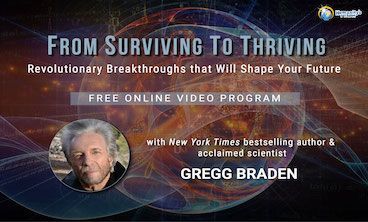
How to Ask Your Boss for a More Conscious Work Environment
You’re starting to feel that familiar sense of uneasiness and agitation. You felt it in your last position too, but decided to exit stage right rather than face the problem head-on. At the time it felt too big, and you felt the inability to make a sizable shift. Now, with a belief in the company's ability to change and the newly formed courage to speak, you are ready to move beyond the silo working conditions and lack of care and community that plague the office. While you know that you and your colleagues would benefit from a more conscious work environment, you might not be sure what it looks like – or how to advocate for one. This article shares not only the differences between an unconscious work environment and a conscious one but also how you can champion the idea of a workplace with conscious business practices at the fore.
So, what is an unconscious work environment?
In an unconscious work environment, the focus tends to be solely on short-term goals, immediate gains, and productivity. These hard-driven objectives often come at the expense of the well-being of its employees and even the long-term health of the organization itself. The atmosphere may lack genuine compassion, transparency, inclusion, and a sense of communal achievement. While such an environment may yield quick financial returns, it often does so by depleting the emotional and mental reserves of its staff.
Burnout, Disengagement, and Churn
Employees are at a higher risk of experiencing workplace stress and burnout when working in an unconscious environment. High expectations, long hours, and a lack of emotional support can culminate in exhaustion and disengagement. This pervasive attitude is one of profit over people, and over time, this lack of a psychologically safe space can lead to anxiety, depression, and other mental health issues for workers, as well as physical conditions like obesity, hypertension, and digestive issues.
An unconscious work environment may also negatively affect not just the individual but their family and social circle. A stressed employee often has less time and emotional bandwidth for their family and friends, which can lead to strained or fractured relationships.
While companies with unconscious work environments may initially appear profitable because they focus on immediate gains, they often don't account for the hidden costs of employee turnover, reduced productivity due to burnout, and the financial cost of healthcare for stressed employees. Talented individuals who value conscious living may choose to leave after a short period, seeking environments where they feel more valued and aligned with their personal beliefs.
Reputation Loss
In the age of social media, a company's reputation is ever more transparent. Poor employee well-being can lead to negative reviews on platforms like Glassdoor, impacting the company's ability to attract top talent. And from a long-term perspective, unconscious businesses are unsustainable. With environmental, social, and governance (ESG) criteria becoming increasingly crucial for investors, companies that don't prioritize conscious living are likely to face financial penalties or reduced investor interest in the future. In sum, unconscious work environments, while potentially profitable in the short term, come with a heavy price tag. They are taxing on both the individual employee's health and the long-term prospects of the business. Ultimately, no one benefits from this type of environment.
Benefits of a Conscious Work Environment
Now let’s imagine a world where more and more companies make the shift towards conscious living. By creating a conscious work environment, these companies are planting seeds of transformative change that have the potential to grow and positively impact not just the individual but the collective as well. In a conscious work environment, people are encouraged to show up authentically, to honor their unique gifts, and to collaborate rather than compete. This fosters an incredible sense of unity and oneness, where employees begin to see themselves not as isolated entities vying for limited resources but as interconnected parts of a greater whole. This awareness elevates our actions, decisions, and relationships at work, transforming mundane tasks into acts of purpose. Visualize a workplace where people are tuned into the shared mission and values of the organization, where decision-making is holistic and takes into account the well-being of all stakeholders, including employees, customers, communities, and the planet. This results in a work culture where respect, integrity, and empathy reign – creating fertile ground for innovation, productivity, and happiness.
So, how do you ask your boss to make a shift?
Advocating for a more conscious work environment is a vital and transformative step toward creating a world that reflects the principles of unity, compassion, and sustainable living. The workplace is a microcosm of society, and what takes place there has ripple effects far beyond the office walls. Here are some ideas on how to engage your boss in a conversation about developing a more conscious work environment.
Choose the Right Moment
Timing can make all the difference. Pick a time when your boss is not swamped with work or stressed about deadlines. This is a conversation that calls for open minds and undivided attention. Suggest meeting outside the office for coffee or lunch to encourage fewer distractions.
Come Prepared
Before speaking to your boss, gather data and case studies to support your case. Numbers speak volumes, and studies that show how conscious business practices positively impact performance, employee well-being, and long-term sustainability can be particularly persuasive. Workplace wellness data can easily be found using simple online searches. If you are able, provide information that depicts the benefits of companies similar in size and category to your own.
Start with Common Goals
Begin the conversation by acknowledging the current goals and accomplishments of your company. Frame your request as an extension of these existing objectives. If your company values innovation, for example, explain how a conscious work environment fosters creativity. By connecting your idea to the company's mission or values, you're showing that you're not just thinking of change for change's sake but as a way to propel the business forward.
Use Resonant Language
Given that you appreciate resonant language, use it here to engage on a deeper level. Discuss the interconnectedness of employees, how their well-being trickles into their work, and how that, in turn, affects the company and society as a whole. Make it clear that creating a more conscious work environment is a win-win for everyone.
Be Specific
Speaking in generalities won't get you very far. Instead of stating that you want a workplace focused on more well-being, be specific about what changes you propose. Whether it's implementing mindfulness practices, fostering open dialogue, creating more inclusive hiring practices, or becoming more eco-friendly, offer your well-reasoned suggestions and what concrete steps can be taken to effect change.
Show the Bigger Picture
Illustrate how adopting conscious practices aligns with long-term sustainability, both for the company and society. Highlight examples of companies that have made similar changes and reaped the benefits, such as Patagonia, Google, and Starbucks. Bonus points for mentioning companies like yours that have also implemented such practices. Place emphasis on the fact that when people are nourished in such an environment, they don't just clock in and out. Rather, these employees often actively contribute to making the organization a force for good.
Be Open to Dialogue
This shouldn't be a monologue. Be prepared to listen and adapt your suggestions based on your boss's feedback. If resistance arises, try to reason with their concerns and address them directly rather than becoming defensive. This open conversation of give and take will support a free flow of promising ideas and encouraging solutions.
Offer to Take the Lead
Proactivity shows commitment. Offer to spearhead the first initiative or be part of the team that will. Make it known to your boss that if a conscious work environment is something they support, you are willing to devote both your time and effort for the greater good of the company.
End on a High Note
Close the conversation by thanking your boss for their time and reiterating your enthusiasm for contributing to a more conscious, unified, and sustainable work environment.
By appealing to both the rational and emotional facets of human nature, you not only make a compelling case but also start the ripple effect of conscious living right in your own workplace. Moreover, a conscious work environment exponentially increases the chances of manifesting a flourishing world for everyone for generations. It becomes a microcosm of the world we aspire to create—a world operating from a place of consciousness and unity. Imagine if just 10% of workplaces made this shift—we'd be at that tipping point for making positive global change.
With collaborative effort and a shared vision, conscious living could become the most productive and sustainable way of inhabiting the Earth
by 2040.
You are encouraged to take that step, to have that conversation with your boss, and to become the change-maker in your own small yet profoundly significant way.
Learn more about being a conscious business change agent
here with the free webinar Putting Business at the Forefront of Change: Conscious Business Practices for a Flourishing World.
Share this post!
LATEST BLOGS




FREE PROGRAMS
LISTEN TO ONE OF OUR RECENT PODCASTS
Sign up now so you never miss a blog post, podcast,
or free event with Humanity's Team!




















